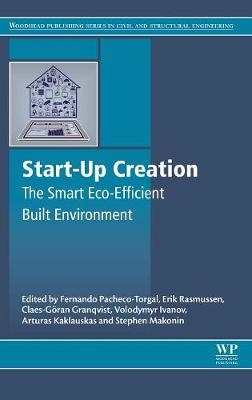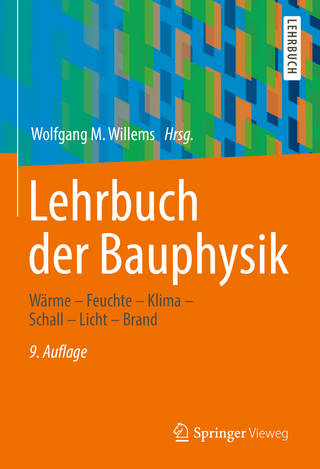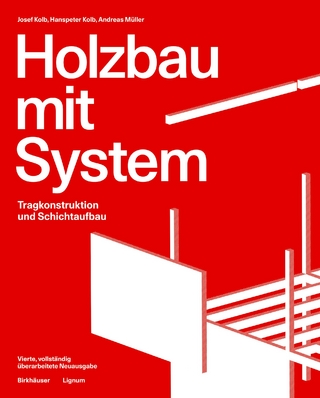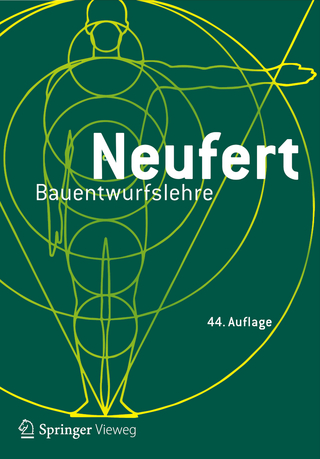
Start-Up Creation
Woodhead Publishing Ltd (Verlag)
978-0-08-100546-0 (ISBN)
- Titel erscheint in neuer Auflage
- Artikel merken
Part Two presents the latest research findings on nano and bio-based technologies and their application and use to the energy efficiency of the built environment. Part Three focuses on the use of genetic algorithms, Big Data, and the Internet of Things applications. Finally, the book ends with an entire section dedicated to App development using selected case studies that illustrate their application and use for monitoring building energy-efficiency.
Dr. F. Pacheco Torgal is a Principal Investigator at the University of Minho in Portugal. He holds the title of Counsellor at the Portuguese Engineers Association. He is a member of the editorial boards for nine international journals. Over the last 10 years he has participated in the research decision for more than 460 papers and has also acted as a Foreign Expert on the evaluation of 22 PhD thesis. Over the last 10 years he has also been a Member of the Scientific Committees for more than 60 conferences, most of them held in Asian countries. He is also a grant assessor for several scientific institutions in 15 countries, including the UK, US, Netherlands, China, France, Australia, Kazakhstan, Belgium, Spain, Czech Republic, Chile, Saudi Arabia, UA. Emirates, Croatia, Poland, and the EU Commission. In the last 10 years, he reviewed more than 70 research projects. Erik Stavnsager Rasmussen is an Associate Professor in the Department of Marketing and Management, International Business and Entrepreneurship, University of Southern Denmark, Denmark. His research areas include international new ventures and born global firms. Claes G. Granqvist is Professor of Solid-State Physics at the Ångström Laboratory, Uppsala University, Sweden. His research is focused on optical and electrical properties of materials, especially thin films for energy efficiency and solar energy utilization. He has written numerous scientific publications, books and proceedings volumes and is a member of several academies and societies. Dr. Volodymyr Ivanov has more than 40 years of teaching and research experience on Environmental, Industrial, and Construction Microbiology and Biotechnology in the universities of Europe, Asia, and USA. He has authored 200 papers, patents, book chapters and 8 monographs. His textbook “Environmental Microbiology for Engineers, Francis & Taylor, 1st (2010) and 2nd (2015) editions, has been adopted for graduate and post-graduate courses in many universities. His research experience includes the supervision and participation in numerous projects on biotechnologies with biofilms and biogranules, microbial transformations of iron, biocementation, bioclogging, bioremediation of soil, and microbiological monitoring of water quality. A. Kaklauskas is a professor at Vilnius Gediminas Technical University, in Lithuania; Member of the Research Council of Lithuania; Member of the Science Europe working group on Data Sharing and Supporting Infrastructures; Head of the Department of Construction Management and Property; member of the Lithuanian Academy of Sciences; editor-in-chief of Journal of Civil Engineering and Management; editor of Engineering Applications of Artificial Intelligence; and associate editor of Ecological Indicators. He contributed to nine Framework and five Horizon 2020 program projects and participated in over 30 other projects in the EU, US, Africa. and Asia. His publications include nine books and 150 papers. His areas of interest include affective computing; intelligent tutoring systems; affective intelligent tutoring systems; massive open online courses (MOOCS); affective internet of things; smart built environment; intelligent event prediction; opinion mining; intelligent decision support systems; life cycle analyses of built environments; big data and text analytics. Dr. Stephen Makonin is a postdoctoral fellow in Engineering Science at Simon Fraser University. His research interests include data science, big data, computational sustainability, probabilistic modelling, disaggregation, and nonintrusive load monitoring (NILM). Other interests include open science; the making of hardware and software open source and the creation of public datasets.
1. Introduction to start-up creation for the smart eco-efficient built environment
Part One: Business plans, Start-up Financing, Marketing, Creativity and Intellectual Property Marketing 2. Business plan basics for engineers 3. Lean start-up: Making start-up more successful 4. Start-up financing 5. Marketing for start-ups 6. A Minimalist Model for Measuring Entrepreneurial Creativity in Eco-systems 7. Intellectual property
Part Two: Nano and Biotechnologies for Eco-efficient Buildings 8. Nano-based thermal insulators for building energy efficiency 9. Nano-based thermal storage technologies for building energy efficiency 10. Nano-based chromogenic technologies for building energy efficiency 11. Façade integrated photobioreactors for energy efficiency 12. Biotechnologies for improving indoor air quality 13. Bioplastics for building façades
Part 3: Algorithms, Big Data and IoT for Eco-efficient and Smart Buildings 14. Development of algorithms for building retrofit 15. The use of algorithms for light control 16. Big data and cloud computing for building energy efficiency 17. Intelligent decision support systems and the internet of things for the smart built environment 18. App programming and its use in smart buildings 19. Apps for smart buildings: a case study on building security
| Erscheinungsdatum | 28.05.2016 |
|---|---|
| Verlagsort | Cambridge |
| Sprache | englisch |
| Maße | 152 x 229 mm |
| Gewicht | 660 g |
| Themenwelt | Technik ► Architektur |
| Technik ► Maschinenbau | |
| ISBN-10 | 0-08-100546-6 / 0081005466 |
| ISBN-13 | 978-0-08-100546-0 / 9780081005460 |
| Zustand | Neuware |
| Haben Sie eine Frage zum Produkt? |
aus dem Bereich



